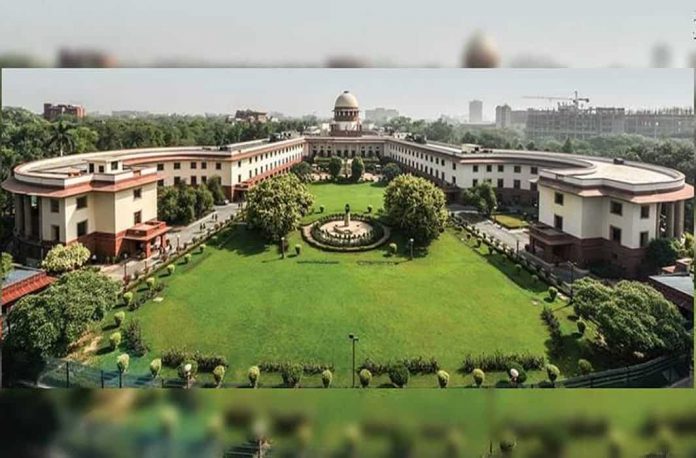New Delhi (ILNS): The Supreme Court has said that “While assurance of a fair trial needs to be respected, the plea for transfer of case should not be entertained on mere apprehension of a hyper sensitive person.”
Justice Hrishikesh Roy dismissed a plea filed by investigative journalist Umesh Kumar Sharma, seeking transfer of three criminal cases pending against him to Delhi from Dehradun on the ground of malicious prosecution within the state.
Senior Counsel Kapil Sibal submitted that the petitioner apprehends threat to his life and will be prejudiced in conducting his defence in the courts at Dehradun. The basic premise for such apprehension is that on account of his work as an investigative journalist against the ruling dispensation, the state is targeting the petitioner for vindictive prosecution. As a journalist the petitioner has conducted sting operations against the Chief Minister, his relatives and associates in the State of Uttarakhand and therefore he is being targeted for malicious prosecution within the State. Moreover, besides the three cases for which transfer is sought, many false cases are foisted against the petitioner. As such, the petitioner has a genuine and justifiable apprehension that justice will not be done if the trials are conducted in the courts within the State of Uttarakhand. Therefore, those cases be transferred either to the courts in Delhi or to any other competent courts, out of Uttarakhand.
Read Also: Employee’s Compensation Act, 1923: Study of Employer’s Liability & Non-Liability for Compensation
Advocate Ruchira Gupta, representing the State of Uttarakhand submitted that the petitioner has failed to demonstrate how and in what manner, he will be prejudiced if the trials continue in the courts at Dehradun. According to her, the effort of the petitioner is filed only to delay the proceedings. Since investigation in all three cases have been concluded and charge sheet has been filed, the apprehension of interference in the cases by the State administration is contended to be wholly unfounded.
Arvind Kumar Shukla , Counsel on behalf of the complainant in one of the FIR has stated that the petitioner is using the cover of journalism to grab property in as much as none of the so-called sting operations carried out by the petitioner has led to prosecution of anyone in the State of Uttarakhand. In most of the 29 cases pending against the petitioner, the primary charge is grabbing of property, and accordingly, the counsel argues that the petitioner has put forth a non-bonafide plea, in order to delay the trial against him.
The Court, while considering the arguments, noted that “When the nature of the three cases are examined, it is seen that two of the cases are property and Will related matters. One case is pending for over a decade. Therefore, this court finds it difficult to accept that the cases are on account of journalistic activities of the petitioner. In fact the credibility of the journalistic activity of the petitioner is itself questioned, by a member of his sting operation team, in the third case.”
Citing the judgements in Maneka Sanjay Gandhi vs. Rani Jethmalani , Abdul Nazar Madan vs. State of T.N. , R. Balakrishna Pillai vs. State of Kerala and Captain Amrinder Singh Vs. Prakash Singh Badal & Ors. in issue of transfer of criminal cases, the Court observed that “transfer power under section 406 of the Code is to be invoked sparingly. Only when fair justice is in peril, a plea for transfer might be considered. The court, however, will have to be fully satisfied that impartial trial is not possible. Equally important is to verify that the apprehension of not getting a level playing field, is based on some credible material and not just conjectures and surmises.
“While assurance of a fair trial needs to be respected, the plea for transfer of case should not be entertained on mere apprehension of a hyper sensitive person,” said the court.
Read the judgment here;
30601-2019-38-1501-24395-Judgement-16-Oct-2020-ILNS



Comments are closed.